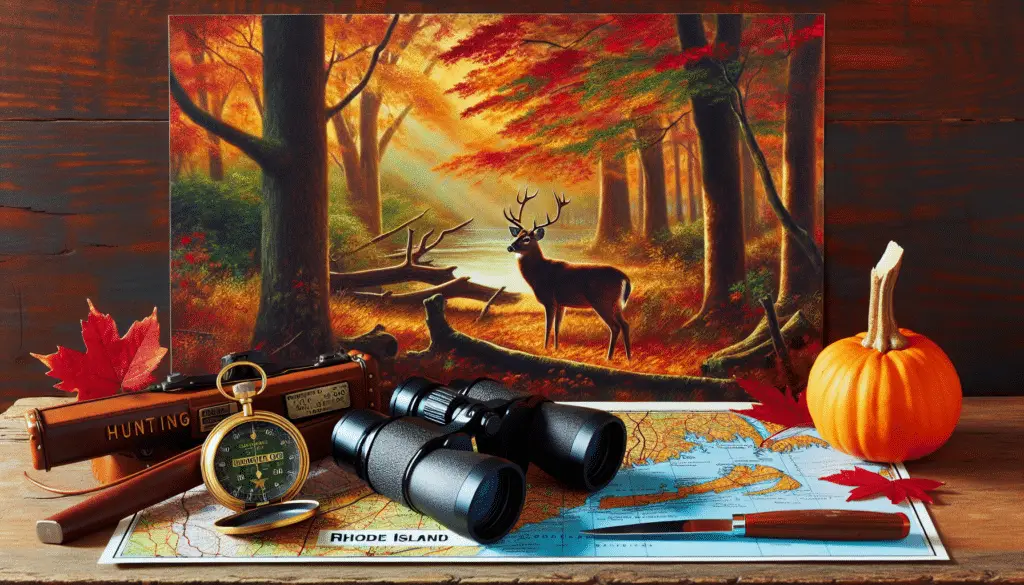Understanding Rhode Island Deer Hunting Regulations
Before you embark on a deer hunting trip in Rhode Island, it’s essential to understand the state-specific regulations. Rhode Island Department of Environmental Management (RIDEM) oversees all hunting regulations to ensure sustainability and safety for hunters and local wildlife.
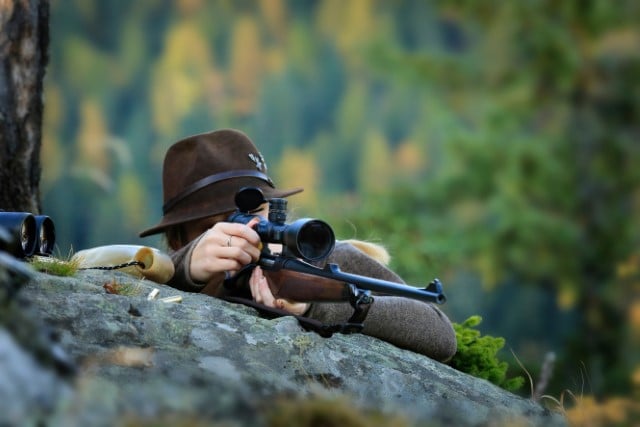
Firstly, you’ll need to obtain the appropriate hunting license. In Rhode Island, there are several options including resident, non-resident, and youth licenses. Additionally, special permits are required for certain areas and types of hunts.
The hunting seasons in Rhode Island are typically segmented into archery, muzzleloader, and shotgun seasons. It’s vital to check RIDEM’s official website or local publications for the precise dates as they can change annually.
One thing to keep in mind is the zone-specific rules. Rhode Island is divided into different zones, each with its regulations regarding harvest limits, the type of equipment allowed, and specific days when hunting is permitted.
Selecting the Right Hunting Zone
Choosing the correct hunting zone is a crucial step to success. Rhode Island may be small, but its zones differ significantly in terms of deer population density and habitat types.
For instance, while zones near agricultural areas or outskirts of suburbs may have higher deer populations due to accessible food sources, forested zones might offer more challenging hunting conditions but potentially bigger bucks.
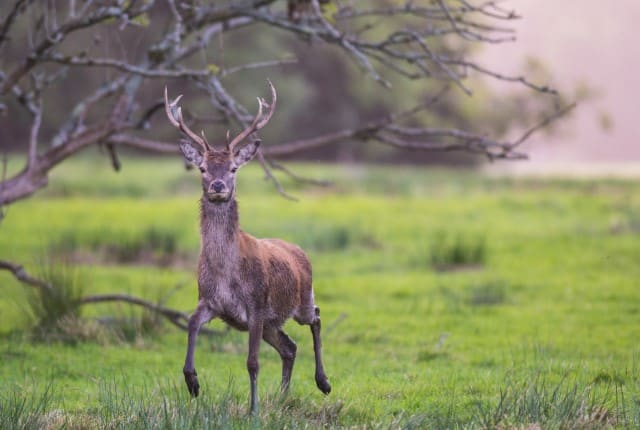
Scouting is a recommended practice. Visiting the area before the season can give you insights into deer patterns and movements. Looking for signs like tracks, rubs, and scrapes can also guide you to select the best hunting spots within a particular zone.
Choosing the Right Equipment for Rhode Island Deer Hunting
Matching your hunting equipment to the environment and season is critical. For archery season, compound bows and recurve bows are popular choices among Rhode Island hunters. When using a compound bow, ensure it has an adequate draw weight to ethically harvest a deer.
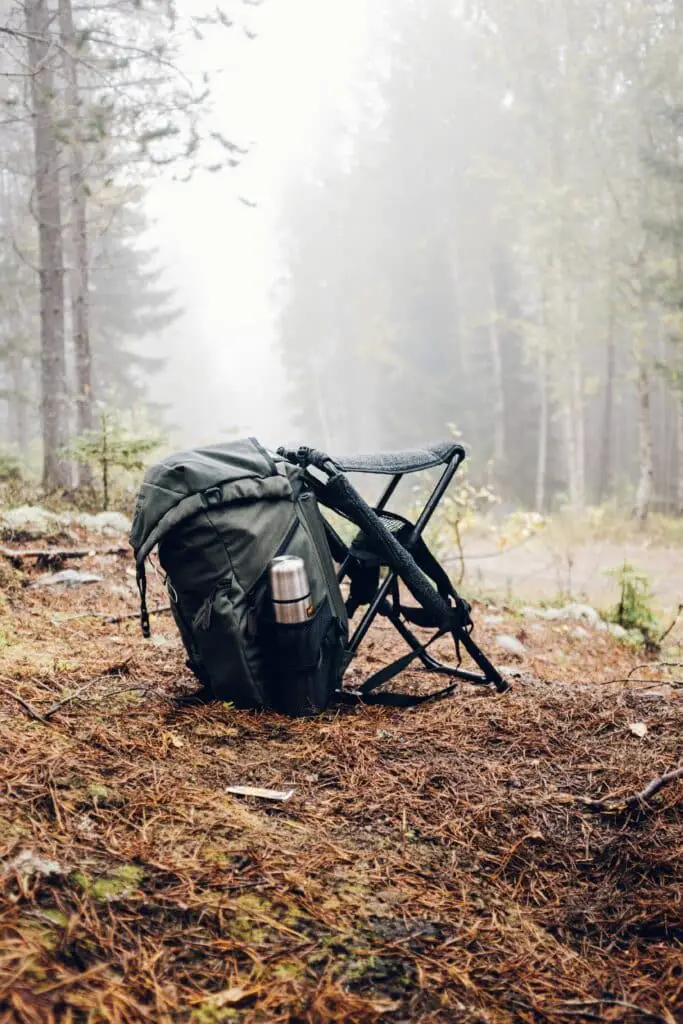
Muzzleloader season brings its considerations, such as the type of powder and bullets to use. Non-toxic shot is often a requirement, and following safety guidelines for handling and storage is a must.
During shotgun season, a reliable shotgun is your best ally. Most hunters prefer a 12 or 20-gauge shotgun with slugs for deer hunting. Remember, Rhode Island might have specific regulations regarding the type of ammunition and magazine capacity you can use.
Effective Deer Scouting Techniques in Rhode Island
Efficient scouting can make or break your hunting trip. It involves identifying deer activity, understanding their daily patterns, and pinpointing where they bed, feed, and travel.
One method is trail camera surveillance. Positioning cameras near trails, feeding areas, or water sources provides valuable information about the time of day deer are most active. Keep in mind, respecting privacy and securing permissions for camera placement is key.
Boots-on-the-ground scouting also can’t be underestimated. Physically exploring your chosen zone allows you to adapt and plan your hunt based on the real-time conditions you find. Look for natural corridors and pinch points that funnel deer movement, increasing your chances of an encounter.
Public and Private Land Options for Deer Hunting in Rhode Island
In Rhode Island, public lands offer a variety of habitats for deer hunting, including state parks, management areas, and other public-access lands. You’ll need to ensure these areas are open to hunting and don’t have restrictions in place.
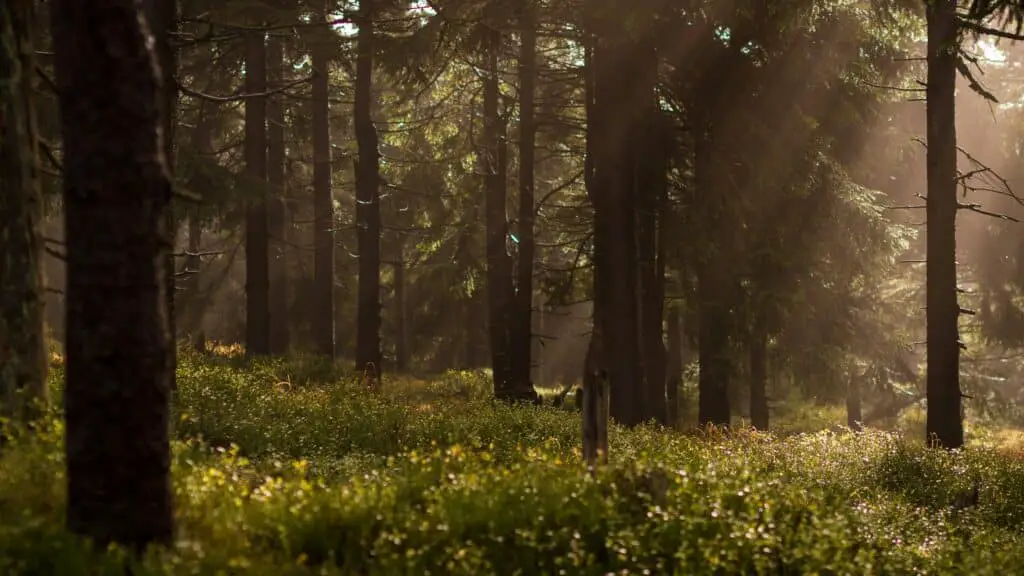
Private land hunting is an option with proper permission. Securing access to private property often leads to less pressured deer and potentially more fruitful hunts. Always get written permission and establish a respectful relationship with landowners – this can lead to future hunting opportunities.
One must-visit public land is the Arcadia Management Area, which covers over 14,000 acres of diverse habitats. It’s known for its high deer density and hunter success rates. However, make sure to follow all rules in order to preserve these public hunting grounds for everyone to enjoy.
Hunting Safety and Ethics
When hunting in any state, safety should be your top priority. Rhode Island requires hunters to wear a minimum of 500 square inches of fluorescent orange during certain seasons to ensure visibility.
Moreover, ethical hunting practices like taking clean shots, following up on shots, and respecting the land and wildlife are paramount. This respect extends to other hunters – be aware of your surroundings and maintain a safe distance from others in the field.
Ticks are a concern in Rhode Island, so tick prevention and checks should be a routine part of your hunting preparations and post-hunt rituals. Ticks can carry Lyme disease, which is prevalent in the northeastern United States.
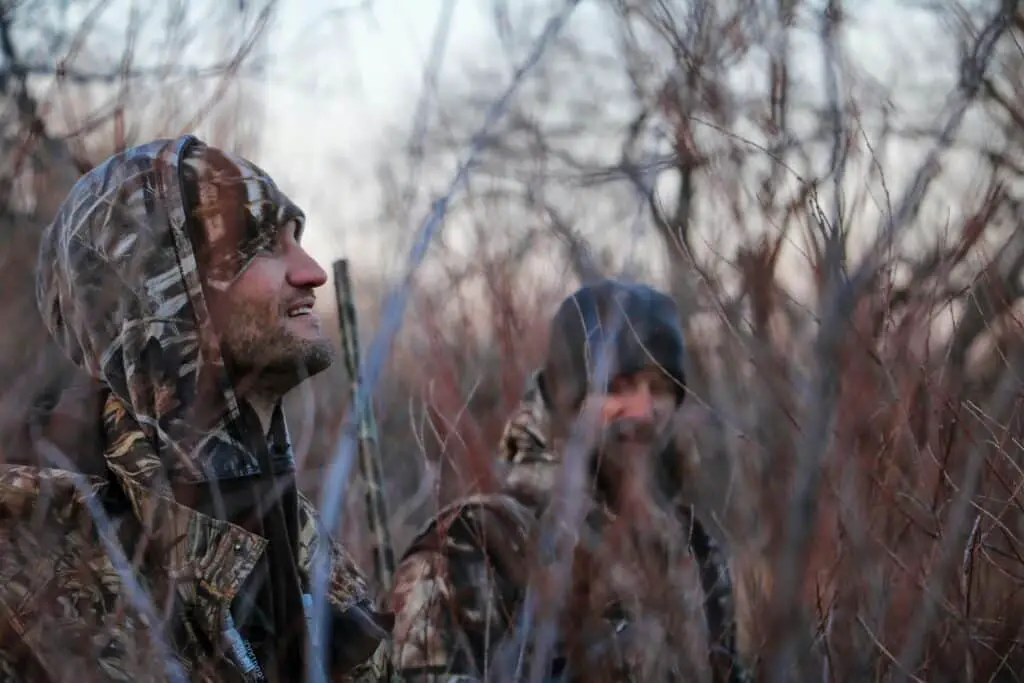
After the Hunt: Processing and Culinary Delights
Successfully harvesting a deer is just the beginning. Processing your deer is a critical step to ensure the meat is preserved and safe to consume. Rhode Island has several deer processors, but if you’re skilled, you may opt for DIY processing.
Learning the art of field dressing, skinning, and butchering can be rewarding and economical. There are tools to aid in this process, such as the Outdoor Edge Butcher-Lite Portable Butcher Kit.
This butcher kit comes with everything you need for field dressing and butchering, highly esteemed by hunters for its sharpness and durability. The set includes a range of knives, a saw, gloves, and a carrying case, perfect for hunters looking to process their own game.
Reviewers frequently praise its ergonomic handle design, which provides a comfortable grip during the extended process of breaking down a deer. Moreover, the stainless steel blades are designed for precision cuts, making it a favorite among hunters who take pride in processing their harvest.
Find This and More on Amazon
Deer Hunting Tips You Might Not Have Considered
When deer hunting, especially in a place as specific as Rhode Island, in-depth knowledge of the locale and deer behavior are immense advantages. For example, understanding the impact of coastal weather patterns on deer movements could be key to success.
You might also consider aligning your hunting times with deer feeding times. Deer are crepuscular, meaning they are most active during dawn and dusk periods, which are prime times for hunters to be out in the field.
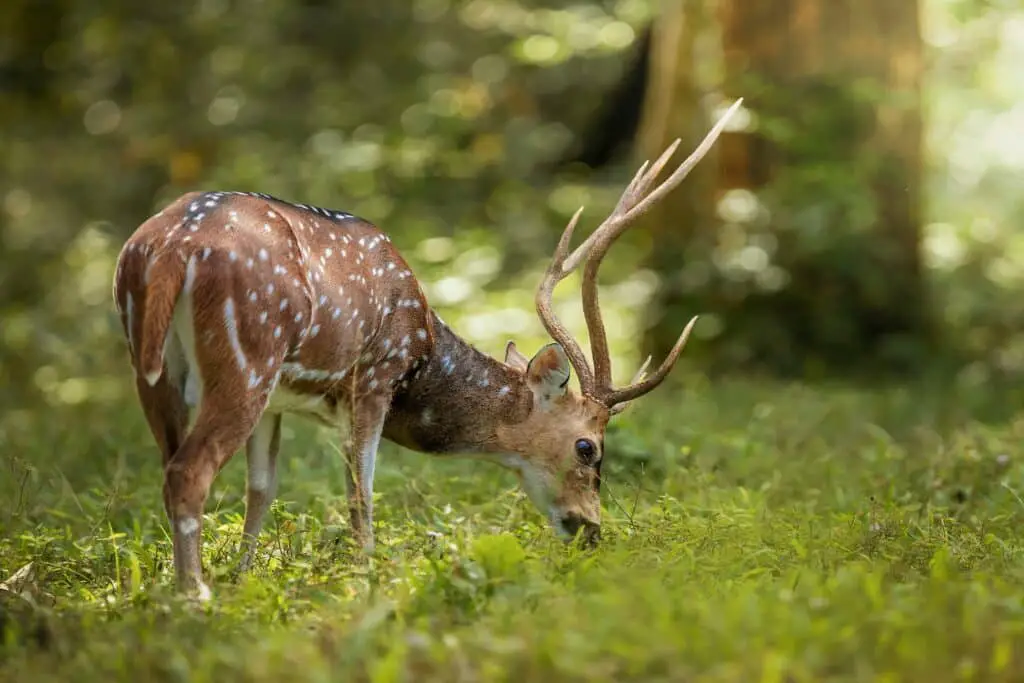
Another tip you may not have considered is practicing ethical shot placement. A knowledge that is supplemented by learning about where to shoot a deer can make for a quick and humane harvest.
Lastly, investing time in understanding the biology and habitat of deer can elevate your hunting approach. Studying how deer utilize their senses to perceive their environment can inform your stealth and strategy in the field.
Maximizing Your Deer Hunting Success with Seasonal Strategies
Seasonal changes in Rhode Island affect deer behavior, making it crucial to adapt your hunting strategies accordingly. In early fall, deer are often found feeding in agricultural fields, where crops like corn and soybeans offer ample food. As the season progresses and mating begins, bucks become less cautious and more mobile, increasing the opportunity for a successful hunt.
During the winter months, particularly in the post-rut season, deer tend to herd up and move to areas with better cover and food availability. Hunting near these resources can be productive, especially in the late season when deer are focused on recovery and survival.
Navigating Rhode Island’s Deer Management Areas
Rhode Island’s deer management areas are designed to manage deer populations effectively. Each area has specific objectives, and the RIDEM sets harvest quotas based on scientific data. Familiarizing yourself with the management objectives of the area you’re hunting in not only provides insight into the local deer population but also helps you contribute to the state’s wildlife conservation efforts.
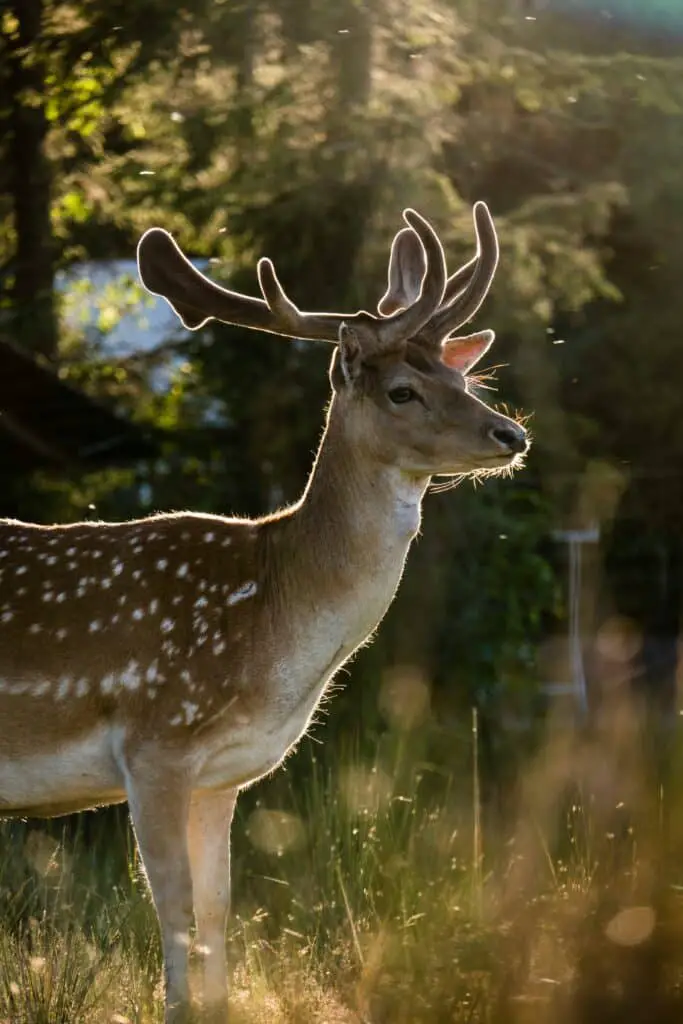
For example, if a management area has a focus on reducing deer numbers to minimize crop damage or prevent overbrowsing of local flora, the bag limits and seasons may be more liberal. Conversely, areas aiming to grow or stabilize the deer population may have more conservative limits.
Staying Current with Rhode Island Deer Hunting Laws
Just as important as scouting and equipment selection are staying informed about changes in hunting laws. Rhode Island may adjust its regulations in response to deer population studies, hunter feedback, and conservation goals. Always review the latest updates from RIDEM before planning your hunt to ensure compliance with any new rules or restrictions.
For instance, Rhode Island periodically revises its list of legal hunting equipment, bag limits, and even hunting area boundaries. These updates play an important part in your hunting preparation and can affect your strategy for the season.
Local Resources and Hunter Education
As a hunter in Rhode Island, you have access to valuable resources such as hunter education courses, seminars, and online materials provided by the RIDEM. Completing a hunter education program is not only mandatory for new hunters, but it’s also beneficial for experienced hunters looking to refresh their knowledge on best practices and legal requirements.
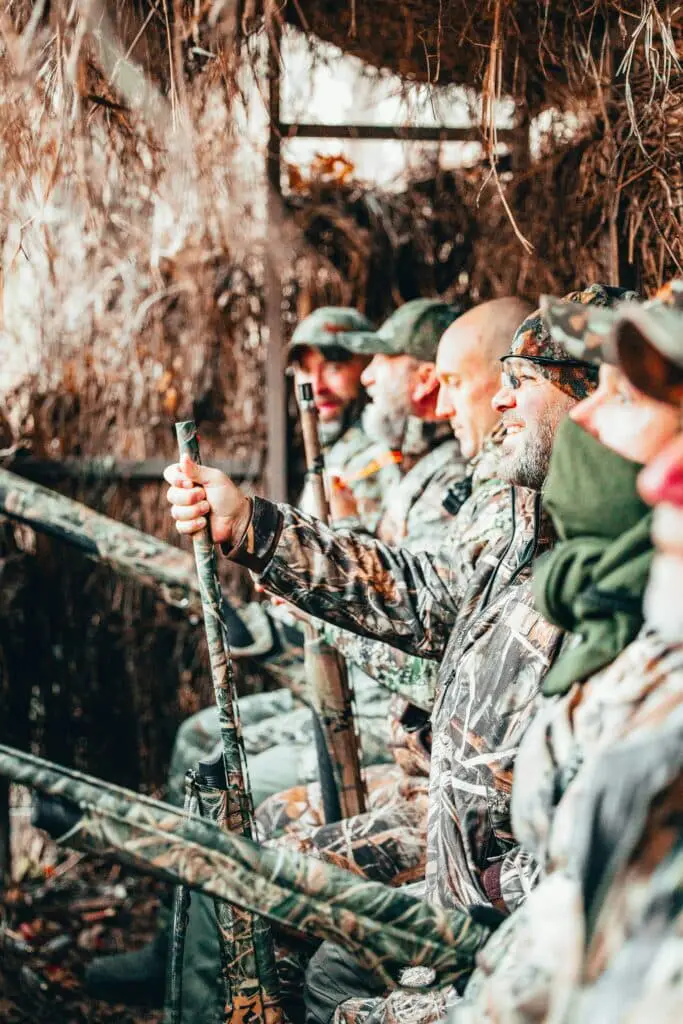
Additionally, local hunting clubs and online forums are great places to connect with other hunters. You can learn from their experiences, share tips, and possibly even find new hunting partners or mentors.
Technology Aids in Rhode Island Deer Hunting
Modern technology has introduced a wealth of tools to assist hunters, from advanced GPS devices to hunting apps. These tools can help with navigation, tracking game, and even in-property scouting. For example, onX Hunt is a popular app among hunters for mapping public and private land boundaries, showing topography, and marking waypoints for hunting stands or trail camera locations.
When it comes to embedding technology into your gear, a quality rangefinder can greatly increase your shot precision. Take the Vortex Optics Ranger Laser Rangefinder, for instance; it’s praised for its accuracy and clear optics, which can help you measure the distance to your target and take ethical shots.
Reviewers of the Vortex Ranger appreciate its intuitive menu, durable design, and the ability to range targets quickly. Its water and fog-proof qualities make it a reliable companion in the damp and variable Rhode Island weather.
Find This and More on Amazon
Creating a Comprehensive Hunting Plan
Having a well-thought-out plan is often what differentiates a successful hunt from an unproductive outing. Your hunting plan should include scouting results, a detailed map of the area, emergency procedures, and a communication plan with fellow hunters or family.
Detail your route, stand locations, and alternate spots in case of changing conditions or pressure from other hunters. Consider wind direction, sunrise and sunset times, and historical deer movement patterns to maximize your potential for success.

Responsible Hunting and Fair Chase Principles
Adhering to the principles of fair chase ensures that the hunt is not only ethical but also challenging and rewarding. This means respecting the animal’s ability to avoid detection and escape, avoiding practices like baiting or shooting deer in enclosures.
In Rhode Island, as in many other places, fair chase is taken very seriously by the hunting community. By honoring these principles, hunters help maintain public support for the sport and contribute to sustainable wildlife management.
Pack Essentials for a Day Out in the Rhode Island Wilderness
When heading out for a day of deer hunting in Rhode Island, there are a few key items you shouldn’t forget. These include a first aid kit, sufficient water, high-energy snacks, a sharp hunting knife, and a compact, high-performance binocular such as the Nikon Prostaff 7S.
The Nikon Prostaff 7S is renowned for its clarity and ruggedness, making it an excellent choice for spotting deer in various terrains. Its ergonomic design and rubberized grip ensure it can be comfortably used for extended periods.
Users rave about the Prostaff 7S for its bright, sharp imaging and lightweight construction. Even in the low-light conditions that are common during peak deer movement times, these binoculars provide an advantage in detecting deer.
Find This and More on Amazon
Harnessing the Power of Scent Control
Controlling your scent is a crucial aspect of deer hunting, as deer have an exceptional sense of smell. Products like scent elimination sprays and scent-reducing clothing can help minimize your presence. A trusted choice among hunters is the ScentLok Full Season Taktix Jacket, which combines odor-absorbing technology with a comfortable, adaptive design.
Reviewers highlight the jacket’s ability to mask human scent effectively while keeping hunters warm and agile. The incorporation of carbon alloy technology targets a broad spectrum of odors, and the weather-resistant outer shell makes it suitable for Rhode Island’s unpredictable climates.
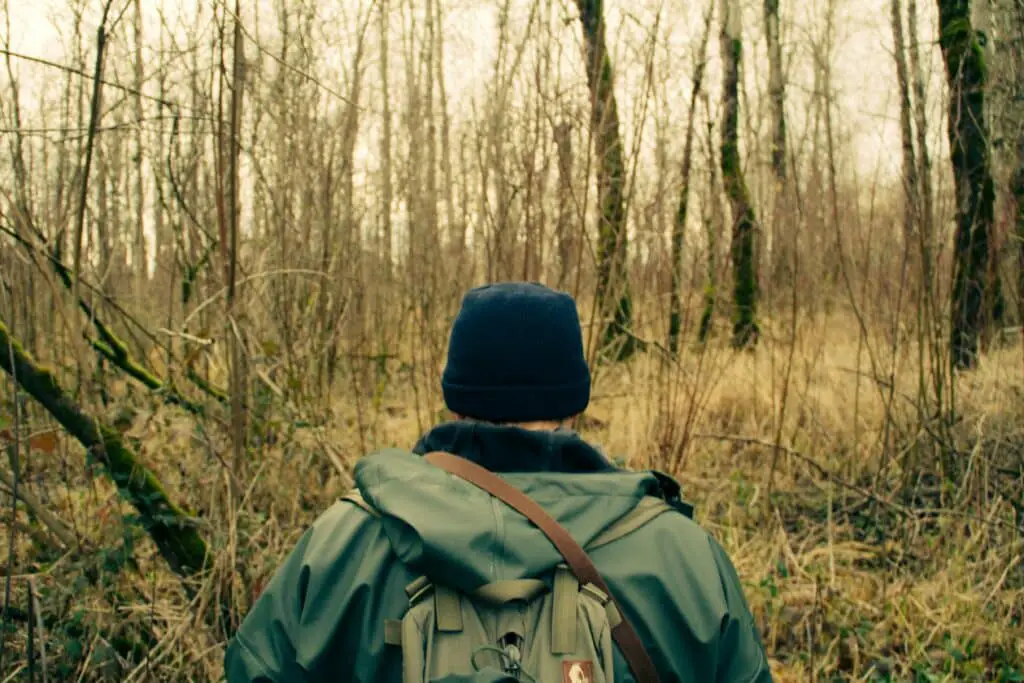
Sustainable Hunting and its Role in Conservation
Sustainable hunting practices in Rhode Island not only support the health of deer populations but also have positive effects on the broader ecosystem. By following established bag limits and engaging in selective harvest based on age and sex, hunters play an active role in managing wildlife resources.
Additionally, purchasing hunting licenses and equipment contributes to conservation funding through programs such as the Pittman-Robertson Act, which directs funds to wildlife management and habitat restoration projects.
Field to Table: The Culinary Rewards of Deer Hunting
Harvesting a deer offers not just the pursuit of the hunt but also the culinary rewards that follow. Venison is a lean, nutritious meat and can be enjoyed in countless recipes from classic stews to gourmet preparations. After a successful hunt, take pride in utilizing as much of the animal as possible and discover the joy of transforming your harvest into savory meals for family and friends.
For those new to preparing venison, there are resources like cookbooks and online forums dedicated to wild game cuisine that offer recipes and tips for both novice and seasoned chefs looking to explore the flavors of their harvest.
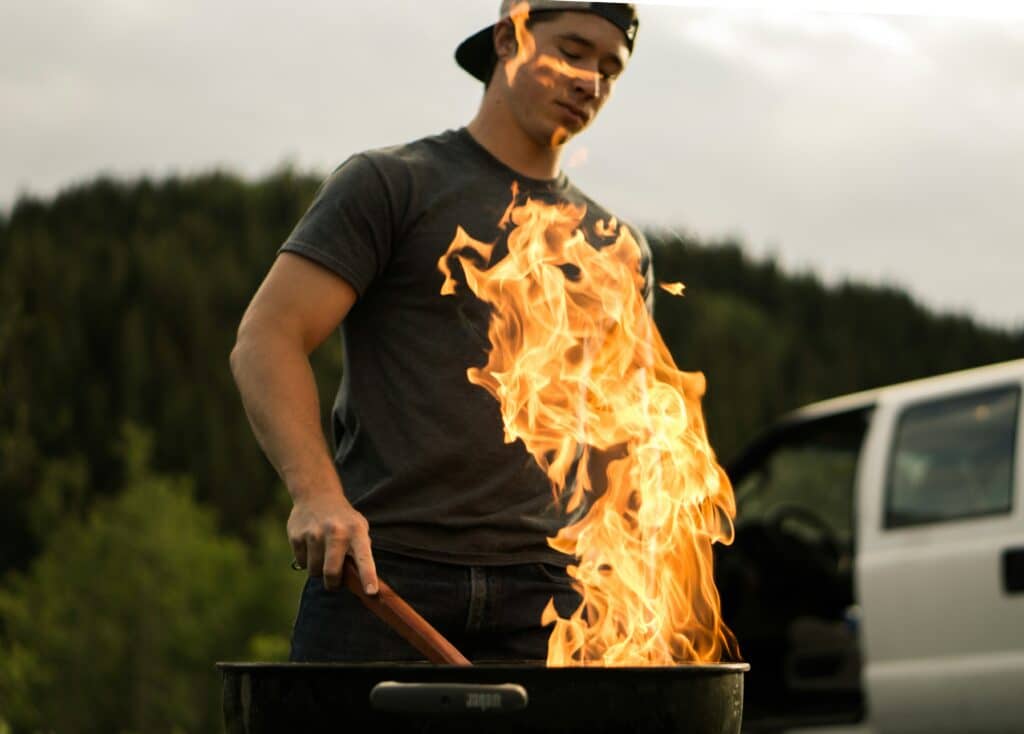
Frequently Asked Questions About Deer Hunting in Rhode Island
What licenses do I need for deer hunting in Rhode Island?
To hunt deer in Rhode Island, you’ll need a hunting license appropriate for your residency—resident, non-resident, or youth—and possibly additional permits depending on the area and type of hunt. Always check with RIDEM for the most current requirements.
Can I use bait to attract deer in Rhode Island?
Rhode Island hunting regulations prohibit the use of baits to attract deer. Hunters are encouraged to use ethical methods like natural concealment and scent control to enhance their hunting experience.
How can I process my deer harvest in Rhode Island?
You can take your harvest to a local deer processor, or you can process it yourself using tools like the Outdoor Edge Butcher-Lite Portable Butcher Kit. DIY processing is both rewarding and economical, providing you possess the necessary skills.
Are there any restrictions on the types of weapons I can use for deer hunting in Rhode Island?
Yes, Rhode Island regulates the types of archery equipment, firearms, and ammunition that can be used for hunting. Before your hunt, make sure to review the current laws regarding allowed equipment during specific seasons, such as archery, muzzleloader, or shotgun season.
Where are the best public lands for deer hunting in Rhode Island?
Public lands like the Arcadia Management Area are known for their high deer density and successful hunting opportunities. Always verify that hunting is permitted and follow the regulations specific to the public land you’re interested in.

